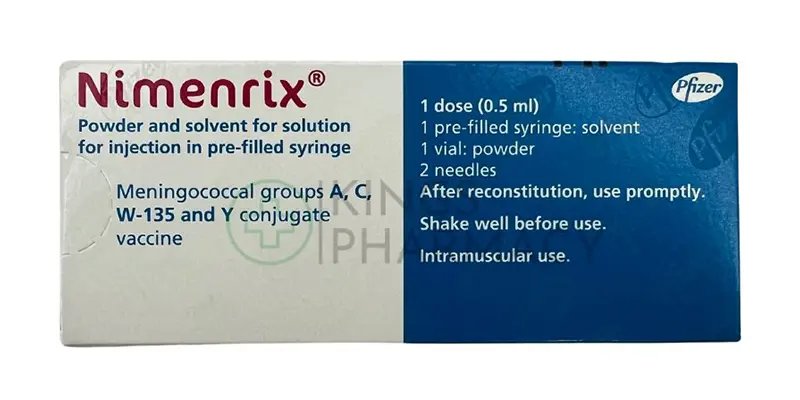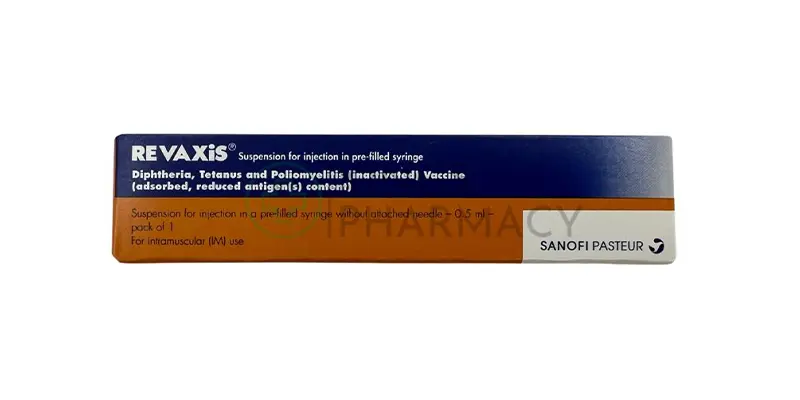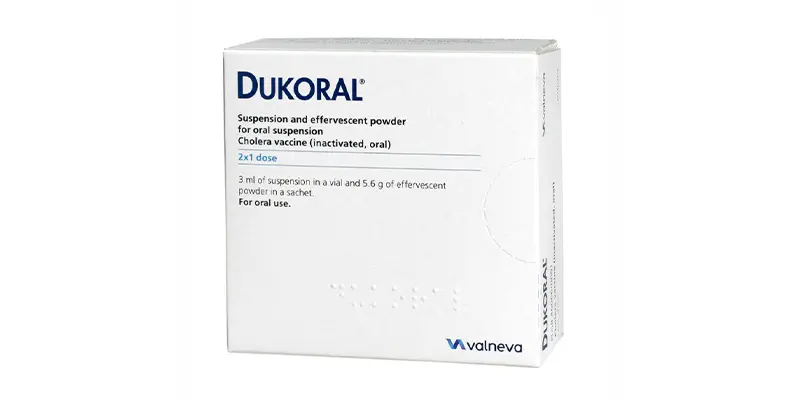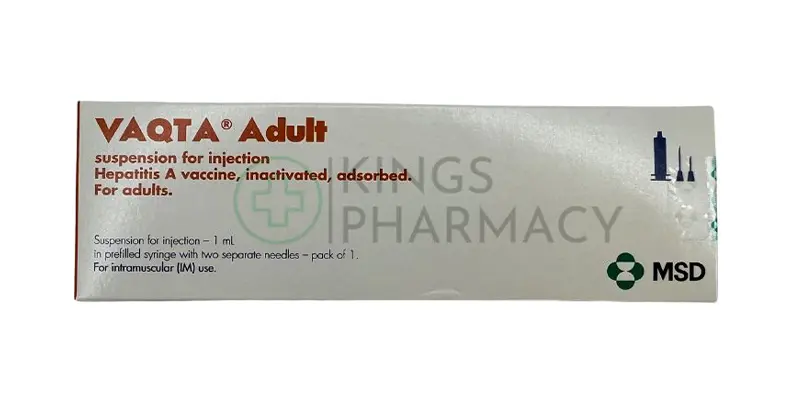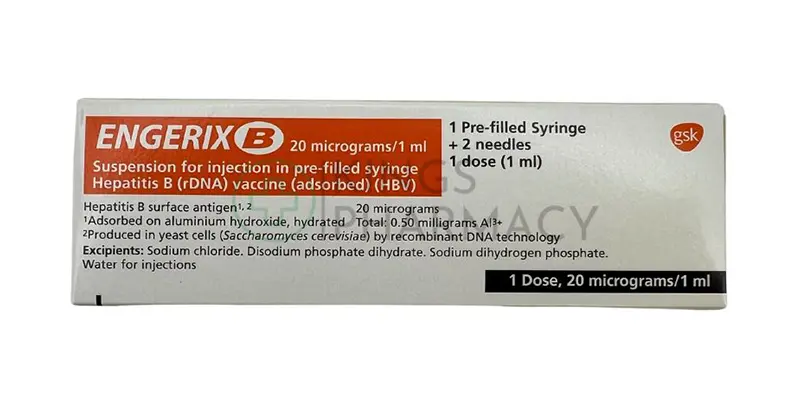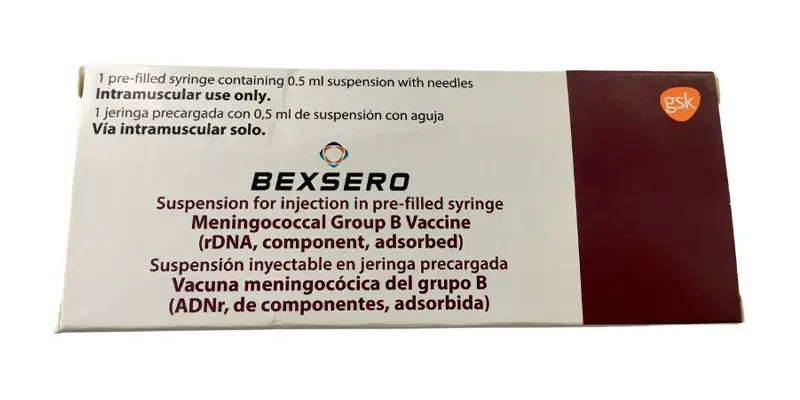Meningococcal ACW135Y Vaccination
The MenACWY vaccine protects against four strains of the meningococcal bacteria (A, C, W, and Y), which can cause serious infections like meningitis and septicemia. It's recommended for adolescents, particularly those entering high school and college, as well as individuals traveling to regions where these strains are common. The vaccine works by stimulating the immune system to produce antibodies that can recognize and fight the bacteria if exposed. Widespread use of MenACWY has significantly reduced the incidence of these infections in many countries.
Select Quantity
What is ACWY Meningitis?
ACWY meningitis is a bacterial infection caused by Neisseria meningitidis bacteria, which can lead to severe inflammation of the protective membranes covering the brain and spinal cord. This form of meningitis is caused by four specific strains of the bacteria, known as groups A, C, W, and Y. Meningococcal disease can result in serious complications such as brain damage, hearing loss, or even death if not treated quickly. It is more common in adolescents, young adults, and people in crowded environments like dormitories or military settings.
Symptoms of ACWY Meningitis
The symptoms of ACWY meningitis can appear suddenly and include:
- High fever
- Severe headache
- Stiff neck
- Nausea and vomiting
- Sensitivity to light
- Rash, often a purple or red skin rash that doesn’t fade when pressed (in some cases)
- Seizures or altered mental state In infants, symptoms can include irritability, poor feeding, and bulging soft spots on the head (fontanelles).
Who Should Consider the ACWY Meningitis Vaccine?
The ACWY meningitis vaccine is recommended for:
- Adolescents and young adults, particularly those aged 16 to 23 years, due to higher risks in group settings like universities, dormitories, and military barracks.
- People living in areas where meningococcal disease outbreaks are more common, including parts of sub-Saharan Africa.
- Individuals at increased risk, such as those with certain medical conditions like asplenia (absence of a spleen) or a weakened immune system.
- Travelers heading to regions with higher rates of meningococcal disease, especially where outbreaks of ACWY strains occur.
- Laboratory workers exposed to meningococcal bacteria.
How Is the ACWY Meningitis Vaccine Administered?
The ACWY meningitis vaccine is given as a single injection. The vaccine is typically administered in the upper arm and provides protection against the four strains of Neisseria meningitidis (A, C, W, and Y). Adolescents generally receive the vaccine at age 11 or 12, with a booster dose around age 16. People at higher risk or traveling to endemic areas may also receive the vaccine at other ages.
Effectiveness of the ACWY Meningitis Vaccine
The ACWY meningitis vaccine is highly effective in preventing infections caused by the four strains of Neisseria meningitidis covered by the vaccine. Protection is usually achieved within a few weeks after vaccination and can last for several years. For adolescents and young adults, a booster dose is typically recommended at age 16 to maintain immunity through late adolescence and early adulthood. While the vaccine provides strong protection against meningitis caused by the ACWY strains, it does not protect against other forms of meningococcal disease, such as meningitis B, for which a separate vaccine is available.
Side Effects of the ACWY Meningitis Vaccine
The ACWY meningitis vaccine is generally safe, with most people experiencing only mild side effects, such as:
- Pain, redness, or swelling at the injection site
- Mild fever
- Fatigue
- Headache These side effects typically resolve within a few days. Serious side effects, including allergic reactions, are rare but can occur. If you experience difficulty breathing, swelling of the face or throat, or a rash, seek immediate medical attention.
When Should You Get the ACWY Meningitis Vaccine?
The ACWY meningitis vaccine is usually given to adolescents at age 11 or 12, with a booster dose at age 16. For those at higher risk or planning to travel to areas with a higher incidence of meningococcal disease, the vaccine can be administered earlier. It is essential to receive the vaccine at least 1 to 2 weeks before traveling to regions where meningococcal disease is prevalent to ensure maximum protection.
Additional Preventive Measures
In addition to vaccination, it’s important to take general precautions to reduce the spread of meningococcal disease:
- Avoid close contact with individuals who are showing symptoms of meningitis
- Wash your hands frequently and practice good hygiene
- Avoid sharing personal items such as drinking glasses, utensils, or toothbrushes
- Seek prompt medical attention if you experience symptoms of meningitis after exposure
What is the MenACWY vaccine?
The MenACWY vaccine is a vaccine that protects against four types of meningococcal bacteria: A, C, W, and Y. These bacteria can cause serious illnesses such as meningitis and septicemia.
Who is eligible for the MenACWY vaccine?
In the UK, the MenACWY vaccine is routinely offered to:
- Teenagers aged 13 to 18, including those in school years 9 to 13.
- First-time university students under the age of 25.
- Individuals with specific medical conditions or who are in close contact with someone who has a compromised immune system.
- Those travelling to Saudi Arabia for Hajj or Umrah
Why is the MenACWY vaccine important?
Meningococcal diseases can be severe and sometimes life-threatening. The MenACWY vaccine helps prevent these diseases by protecting against the four main types of meningococcal bacteria that are most likely to cause outbreaks in the UK.
How is the MenACWY vaccine administered?
The vaccine is given as an injection into the upper arm. For teenagers and young adults, it is usually provided in schools or through GP clinics.
Are there any side effects of the MenACWY vaccine?
Common side effects include redness or swelling at the injection site, mild fever, or feeling generally unwell. These side effects are typically short-lived and mild. Serious side effects are rare.
How effective is the MenACWY vaccine?
The MenACWY vaccine is highly effective in preventing disease caused by the types of meningococcal bacteria it targets. Immunity usually develops within two to three weeks after vaccination.
Do I need to get vaccinated if I had the MenC vaccine previously?
Yes, the MenACWY vaccine provides broader protection compared to the MenC vaccine alone. It is recommended for those who are eligible to ensure comprehensive protection against multiple strains of meningococcal bacteria.
What should I do if I missed my vaccination?
If you missed your vaccination, contact your GP or local health services to arrange an appointment. It is important to catch up on vaccinations to ensure you are protected.
Where can I find more information?
What is the connection between the MenACWY vaccine and Hajj?
The MenACWY vaccine is a requirement for individuals traveling to Saudi Arabia for Hajj or Umrah. This requirement is in place to protect pilgrims from meningococcal disease, which can be a risk in crowded settings. Travelers should receive the vaccine at least 10 days before their journey to ensure effective protection.




